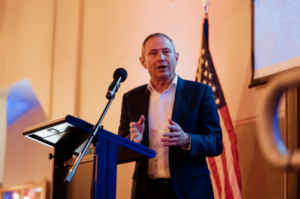Recent analysis of a representative survey of 3350 Americans found a “recipe” of characteristics can predict whether someone lies more than twelve times a year.
“It’s like making a pizza,” says Curtin University’s Professor Arch Woodside, the study’s lead author.
The best ingredients for a big liar were being young, low-income and male, with a tendency towards road rage (giving other drivers the finger, or angrily flashing headlights).
Those most likely to tell the truth were older single women.
And those least likely to be big liars were young married women.
WOULD I LIE TO YOU?
Arch found that 13% of Americans told 58% of the nation’s lies, while 21% said they never lied; 3% reported lying 60 times a year.
But were they telling the truth?
Arch isn’t sure, but thinks it’s interesting anyway.
“This was an anonymous survey…it’s very general, it’s just something I thought would be intriguing.”
And who isn’t interested in knowing the truth about lies?
BUT WHAT ABOUT AUSTRALIA?
The study uses US data. Does it still hold for Australians?
“I would think so,” says Arch, “but to a lesser extent, because Americans are more divided into rich and poor than Australians.”
The US, he points out, has the highest Gini index in the world, indicating a massive gap between its wealthiest and poorest residents.
“When [that gap] gets to be obscene, like it is now in the US, you have a breakdown in social mores, which means a dramatic increase in lying.”
I READ IT ON THE INTERNET, SO…
The survey data is from 1998, pre-Facebook. So is lying more prevalent today?
“You’re asking me for longitudinal information, I don’t have that information. I don’t want to lie to you,” says Arch.
But his best guess is that long-term, face-to-face relationships are best for truth-telling.
“The more non-face-to-face and short-term the relationship…[it] would certainly relate to a breakdown in truth-telling.”
THE TRUTH ABOUT TRUMP?
Dealing with a lie is a complicated process.
“So much of what we do is based on trust,” Arch says.
“First of all, you understand what’s being said, so you accept it.”
“Then you have to refute it in your mind.”
But by then, the damage is often done.
Take Donald Trump, for example.
“Trump just comes up with these balderdash, in-your-face lies,” Arch says.
Unfortunately, once a lie is out there, people who want to believe it will.







